The views expressed in our content reflect individual perspectives and do not represent the official views of the Baha'i Faith.
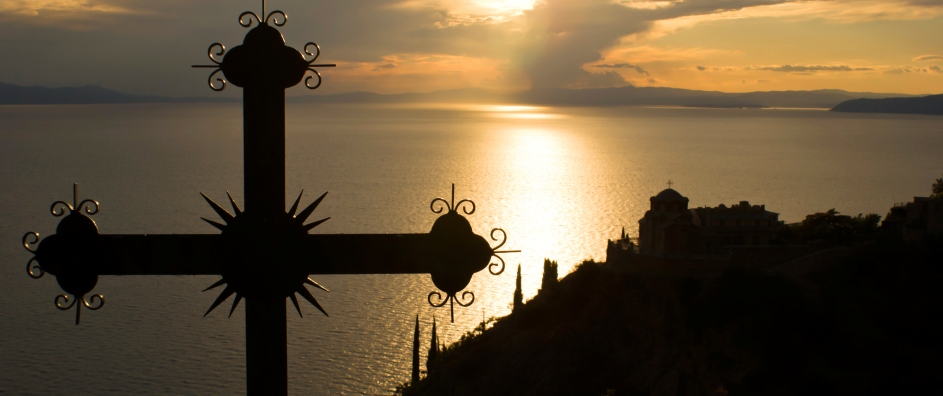 [Editor’s Note: This is the fifth installment of a multi-part essay called “Questions from a Clergyman”. Click here to read from the beginning.]
[Editor’s Note: This is the fifth installment of a multi-part essay called “Questions from a Clergyman”. Click here to read from the beginning.]
One of my most significant questions when I first encountered the Baha’i Faith related to what exactly Christ taught and what could, as a result, be considered fundamental or core Christian belief. Pastor Dan’s next “Cult Night” question — like the one about Pentecost — was one I had confronted in my own investigation.
Dan asked: “Wasn’t the message the disciples delivered to their audiences about the blood atonement and the resurrection?”
The passage I cited in an earlier post (Matthew 28: 16,20) tells us exactly what the disciples taught their audiences — specifically, “to observe all things that I have commanded you.” The Gospel says simply that the new believers must love God, believe in the One He sent, and observe His commandments — a message so simple a child could understand it.
The record of the missionary work of the early disciples bears this out. In Acts 16:30-32, when asked how he might be saved, the disciples told the centurion that he must “Believe on the Lord Jesus Christ.” The verse continues, “And they spake unto him the word of the Lord.”
Again and again, the scripture tells us how Christ’s disciples taught. Of course, they would have told of Jesus’ sacrifice and resurrection. They did this, according to Peter “that your faith and hope might be in God.”
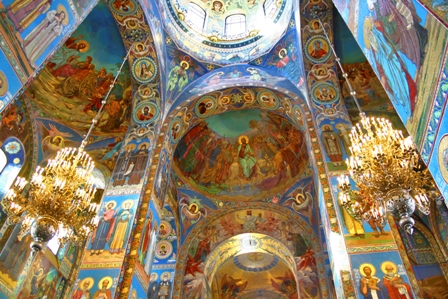 But, note what the salvation of the individual is linked to:
But, note what the salvation of the individual is linked to:
Since you have purified your souls in obeying the truth through the Spirit in sincere love of the brethren, love one another fervently with a pure heart … Now this is the word which by the gospel was preached to you. Therefore, laying aside all malice, all deceit, hypocrisy, envy, and all evil speaking, as newborn babes, desire the pure milk of the word, that you may grow thereby… – 1 Peter 1: 22-25 & 2:1-3
The believer has purified his soul in obeying the truth. Further, he is born again … by the word of God. Then Peter gives a metaphor for the word — as milk to a newborn babe. Newborns cannot live without mother’s milk, and this important metaphor tells us that the human soul cannot be born again without the word of God, and cannot live without it. The Baha’i writings put it this way:
…in the spiritual realm of intelligence and idealism there must be a center of illumination, and that center is the everlasting, ever-shining Sun, the Word of God. Its lights are the lights of reality which have shone upon humanity, illumining the realm of thought and morals, conferring the bounties of the divine world upon man. These lights are the cause of the education of souls and the source of the enlightenment of hearts, sending forth in effulgent radiance the message of the glad-tidings of the kingdom of God. – Abdu’l-Baha, Baha’i World Faith, p. 254.
While the disciples spoke of Christ’s sacrifice and the shedding of His precious blood, it was not His blood, but the “pure milk” of His word that they offered to those they taught.
Read the next article in the series: The Agent of Salvation
Read the previous article in the series: Pentecost and the Spirit of Truth
You May Also Like
Comments



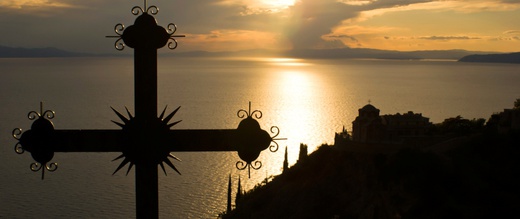

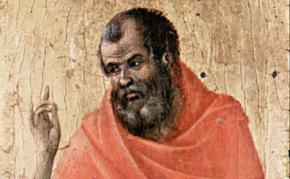
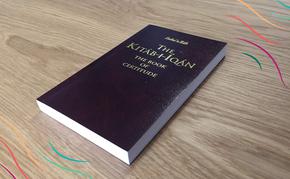

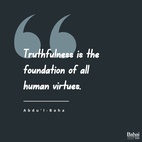
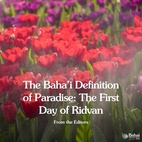







On the sacrifice of Christ: “Know thou that when the Son of Man yielded up His breath to God, the whole creation wept with a great weeping. By sacrificing Himself, however, a fresh capacity was infused into all created things. Its evidences, as witnessed in all the peoples of the earth, are now manifest before thee.” Gleanings pp. 85-86
On the sacrifice of the Báb: “Rejoice, for both I and Quddus will be slain on the altar of our devotion to the King of Glory. ...The blood
which we are destined to shed in His path will water and revive the garden of our immortal felicity. The drops of this consecrated blood will be the seed out of which will arise the mighty Tree of God, the Tree that will gather beneath its all-embracing shadow the peoples and kindreds of the earth.” The Dawn-Breakers, p. 141
On the sacrifice of Bahá’u’lláh: “The Ancient Beauty hath consented to be bound with chains that mankind may be released from its
bondage, and hath accepted to be made a prisoner within this most mighty Stronghold that the whole world may attain unto true liberty. He hath drained to its dregs the cup of sorrow that all the peoples of the earth may attain unto abiding joy, and be filled with gladness. This is of the mercy of your Lord, the Compassionate, the Most Merciful. We have accepted to be abased, O believers in the Unity of God, that ye may be exalted, and have suffered manifold afflictions, that ye might prosper and flourish.” Gleanings p. 99-100
On the sacrifice of those who where imprisoned with Bahá’u’lláh: “The blood, shed in the course of that fateful year in Tihran by
that heroic band with whom Bahá’u’lláh had been imprisoned, was the ransom paid for His deliverance from the hand of a foe that sought to prevent Him from achieving the purpose for which God had destined Him.” God Passes By, p. 104
On the sacrifice of the Purest Branch: “The Purest Branch . . . died at the age of twenty-two in 1870 when he fell through a skylight while rapt in prayer on the roof of the prison barracks in ‘Akká. He asked Bahá’u’lláh to accept his life as a ransom so that pilgrims prevented from attaining Bahá’u’lláh’s presence would be enabled to do so. Bahá’u’lláh, in a prayer, made this astounding
proclamation: ‘Glorified art Thou, O Lord my God! Thou seest Me in the hands of Mine enemies, and My son blood-stained before Thy face, O Thou in Whose hands is the kingdom of all names. I have, O My Lord, offered up that which Thou hast given Me, that Thy
servants may be quickened and all that dwell on earth be united.’” The Universal House of Justice, Messages 1963 to 1986, p. 747
On the sacrifice of the Persian believers: “Suffice it to say that upon these heroes of Bahá’u’lláh’s native land was bestowed the
inestimable privilege of sealing with their life-blood the early triumphs of their cherished Faith, and of paving the way for its approaching victory. In the blood of the unnumbered martyrs of Persia lay the seed of the Divinely-appointed Administration which, though
transplanted from its native soil, is now budding out, under your loving care, into a new order, destined to overshadow all mankind.” The World Order of Bahá’u’lláh, p. 52
On the sacrifice of martyrs: “Such faithful friends as have laid down their lives as martyrs will be stirred by the waves of the ocean of
ecstasy. They will be filled with joy and radiance through the revelation of heavenly glad-tidings, will receive divine confirmations of loving- kindness and will be sustained by the wondrous blessings of the peerless Lord in such wise that they will be moved to say:
‘Praise be unto God that during our lifetime in this mortal world we became the target of darts in the path of God and were exposed to the dire peril of arrows and spears. Every day a shaft of cruelty was hurled at us, and every moment we drank our fill from the draught
of affliction, till eventually we hastened forth to the field of martyrdom for the sake of His love, and offered up our hearts and souls in the path of the All-Merciful’.
“Indeed at that moment such souls will rejoice with exceeding gladness and will be so carried away by the joyful tidings of God that they will wing their flight to the heaven of eternal glory with the utmost ecstasy, exultation and spiritual blissfulness. It is Our ardent
hope now that We too may partake of a drop from this celestial cup and may receive a portion from this life-giving draught. Verily my Lord will vouchsafe His special favours unto whomsoever He pleaseth. No God is there but Him, the All-Bountiful, the Most Generous.” Fire and Light, p. 21
That having been said, the perception that Christ’s death on the cross was atonement for the sins of all mankind for all time came from Christ’s Words at the Last Supper, which was the Passover Feast. At the Passover Feast the Jews (many if not all of the Disciples were Jewish) would eat the flesh of the lamb to commemorate when God “passed over” the people of Israel and spared them the divine punishment that was wrought on the general population. At the Last Supper Christ attempted to break the tradition that eating the physical flesh of an animal had redemptive power and tried to redirect their attention back to the Manifestation of God—Christ Himself—saying, “Verily, verily, I say unto you, Except ye eat the flesh of the Son of man, and drink his blood, ye have no life in you. Whoso eateth my flesh, and drinketh my blood, hath eternal life; and I will raise him up at the last day. For my flesh is meat indeed, and my blood is drink indeed. He that eateth my flesh, and drinketh my blood, dwelleth in me, and I in him.” John 6:53-56
The Church that grew out of Jesus Christ's teachings to all appearances did not grasp the message contained within this statement because they simply viewed Jesus Christ as the new Passover Lamb the eating of which causes God’s punishment to “pass over” you at death. Thus evolved the sacrament of the Eucharist of which ‘Abdu’l-Bahá said, “In the Catholic Church the child is taught that through some act of the priest the bread and wine of the sacrament become the flesh and blood of Jesus Christ. The mind cannot accept this. The child must be taught that this transformation is symbolical of the truth that Christ is the food from heaven, the eating of which produces eternal life.” The Promulgation of Universal Peace, p. 213
‘Abdu’l-Bahá has given the following more expansive interpretation of the bread and wine of the Last Supper, i.e., the body and blood of Jesus Christ, “This bread signifies the heavenly food and divine perfections. So, ‘If any man eateth of this bread’ means if any man acquires heavenly bounty, receives the divine light, or partakes of Christ’s perfections, he thereby gains everlasting life. The blood also signifies the spirit of life and the divine perfections, the lordly splendor and eternal bounty. For all the members of the body gain vital
substance from the circulation of the blood.
“In the Gospel of St. John, chapter 6, verse 26, it is written: ‘Ye seek Me, not because ye saw the miracles, but because ye did eat of the loaves, and were filled.’”
“ . . . it is said in (John 6:35): ‘And Jesus said unto them, I am the bread of life: he that cometh to Me shall never hunger; and he
that believeth on Me shall never thirst.’
“Notice that ‘coming to Him’ He expresses as eating, and ‘belief in Him’ as drinking. Then it is evident and established that the celestial food is the divine bounties, the spiritual splendors, the heavenly teachings, the universal meaning of Christ. To eat is to draw near to Him, and to drink is to believe in Him. For Christ had an elemental body and a celestial form. The elemental body was crucified, but the heavenly form is living and eternal, and the cause of everlasting life . . .” Some Answered Questions, p. 97-98
Carl
Something that I realized about Christ's sacrifice when I looked at it in context with who and what He was is that the greater sacrifice was not giving up a human ...body to return to the right hand of God, but the daily pain and agony of knowing that His teachings would not reach all the souls who could benefit by them. Christ and Baha'u'llah and every other Messenger of God worked ceaselessly through pain, weariness and abuse to teach people who mostly responded with apathy or worse, antipathy.
Christ expresses this sorrow so very well when He speaks of wishing He could gather the people of Israel into His arms and love them ... but they would not.